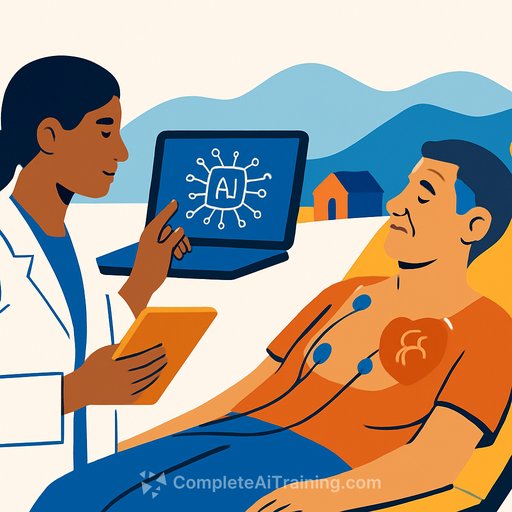AI Models Trained to Diagnose Heart Failure in Rural Appalachian Patients Using Electrocardiograms
Researchers at West Virginia University have developed artificial intelligence models tailored to detect heart failure in rural patients using low-tech electrocardiogram (ECG) data. This addresses a critical gap where AI systems trained on urban patient data often fail to accurately diagnose those living in rural areas like Appalachia.
Addressing Rural Health Disparities with AI
Heart failure, a chronic condition where the heart cannot pump enough blood to meet the body's oxygen needs, disproportionately affects rural U.S. populations. Despite this, many AI diagnostic tools have been trained primarily on data from urban and suburban patients, limiting their effectiveness in rural settings.
Assistant Professor Prashnna Gyawali from WVU highlights a common scenario: a 62-year-old woman from rural Appalachia experiences symptoms like fatigue and shortness of breath. Without access to specialty care or advanced diagnostic tools, an AI system trained on urban data might misinterpret or overlook the severity of her condition due to differences in lifestyle, environment, and healthcare availability.
Training AI on Local Patient Data Improves Diagnostic Accuracy
The team analyzed anonymized medical records from over 55,000 West Virginia patients to identify which AI models best diagnose heart failure. They focused on optimizing input parameters to improve the models’ performance. Their findings were published in Scientific Reports, a journal from the Nature portfolio.
Using Electrocardiograms Instead of Echocardiograms
Doctoral student Alina Devkota explains the choice to train AI models on ECG data rather than the more complex echocardiogram readings commonly used in urban centers. ECGs, which record the heart's electrical signals via electrodes on the torso, are inexpensive and widely accessible in rural clinics. In contrast, echocardiograms require costly equipment and specialized operators, often unavailable in Appalachia.
One key diagnostic measure for heart failure is the ejection fraction—how much blood the heart pumps with each beat. Echocardiography is the gold standard for measuring this but is impractical in many rural settings. The researchers tested whether AI could predict ejection fraction from standard 12-lead ECG data, potentially enabling earlier and more accurate diagnoses.
Deep Learning Models Show Promise
The study compared various AI approaches, including deep learning models like ResNet and simpler algorithms. Deep learning models performed best in predicting ejection fraction from ECG signals. Results suggest that increasing the size of the training dataset could further improve accuracy.
The team also discovered that using specific ECG lead combinations impacted the models' predictive accuracy. While AI tools are not yet ready for clinical use due to reliability concerns, this research marks a significant step toward practical AI-assisted cardiac diagnostics in resource-limited rural environments.
Implications for Rural Healthcare
Heart failure affects over six million Americans, with nearly one in four expected to develop the condition during their lifetime. The prevalence is even higher in rural Appalachia, making accurate, accessible diagnostic tools vital.
Training AI models on local patient data and leveraging widely available ECG technology could provide clinicians in underserved areas with valuable support. This work aims to reduce diagnostic disparities and improve outcomes for rural populations.
Research Team and Further Information
- Prashnna Gyawali, Assistant Professor, Lane Department of Computer Science and Electrical Engineering
- Alina Devkota, Doctoral Student
- Rukesh Prajapati, Graduate Research Assistant
- Amr El-Wakeel, Assistant Professor
- Donald Adjeroh, Professor and Chair, Computer Science
- Brijesh Patel, Assistant Professor, WVU Health Sciences School of Medicine
For more details, see the original Scientific Reports publication.
Your membership also unlocks:





